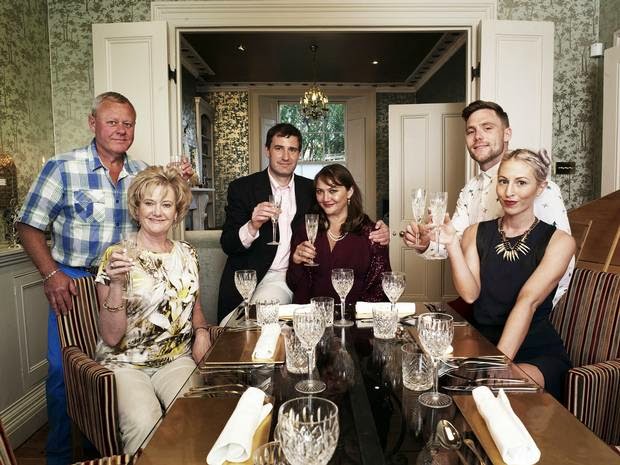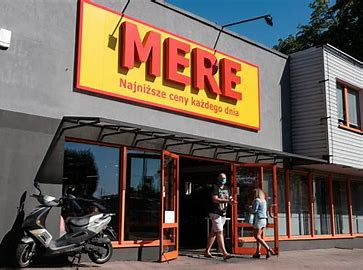Foraging - the Best Places
I'm told that Britain is one of the best places for foraging, and I for one will be out there collecting the free food that is available in our hedgerows and countryside. I have already started by plundering the blackberries that are filling the roadside around our house. I'm getting the little fruits into the freezer for next year's jam making for the church fete. Parishioners can't get enough of the home-made blackberry jam! As for apple trees, they too are dropping their fruit wherever you look and according to press sources, one of the busiest foraging seasons is upon us, and across the country the desire to harvest the wild is stronger than ever.
It's reported in the Daily Telegraph that Charlie Wells, director of Prime Purchase and search agent to millionaires, says that even high-pressured financiers want to reconnect with the land. Ever since Denmark’s Noma was named best restaurant in the world in 2010, seashore and forest finds have been on the most expensive menus. A prize ingredient can play a part in property purchases. “One seller said that he had particularly good Wiltshire truffles under a tree on his land but he wouldn’t say where they were until contracts were exchanged,” says Charlie. “ I find that the more high-powered people are, the more they want to get back to nature.”
So where are the best places in the UK to get a taste of the land – and the sea. The Daily Telegraph recently highlighted three areas of the country that stand-out for foraging.
ISLE OF SKYE
At the Three Chimneys restaurant on Skye, Michael Smith (twice a finalist on the Great British Menu) has established a huge reputation for using the island’s natural larder. Bracadale brown crab, Colbost skink and Loch Dunvegan lobster are on the menu most nights. “A lot of people here forage,” says Michael. “On Skye we are literally in the wilderness, so we have a very intimate relationship with the landscape. Everyone in the kitchen forages and a couple are dedicated to it. “Nature wakes up much later here, about five-and-a-half weeks later than the South Coast. It starts with wild garlic at the end of April, then comes meadowsweet and gorse flower, of which we use a huge amount.” After that, foragers switch to the shoreline for cockles, clams, mussels and seaweed.
Michael thinks that foraging is now integral to our food culture and that we are more fascinated by it than we have been for decades. “In the Highlands there is a great tradition of going off to pick brambles on Sundays and come home to make blackberry jam and apple crumble,” he adds. “This time of year, there are nuts to be picked on the hazel trees, and chanterelle mushrooms, but I can’t tell you where they are because it is important to keep the location secret.”
DEVON
Some people are lucky enough to be able to forage on their own land. George Travis and Linda Davis have turned some of their 13 acres into apple orchards (with lovely old varieties like Crimson Queen and Devonshire Quarrenden) to produce juices and organic ciders. They live in a four-bedroom farmhouse called West Lake, near Beaworthy, north of Dartmoor. They also have a wild flower meadow with County Wildlife Site status which has more than 100 varieties of self-seeding flowers. In a wet patch, willow has been planted for coppicing which they supply to local basket makers. And their hens, which are the Old English Pheasant Fowl breed loved by smallholders, keep busily laying eggs. George and Linda have also just taken the honey from their seven beehives, which they will sell with their own label. “It is an ideal life, and we are connected to a whole network of pure food makers who are passionate about what they do,” says Linda.
DORSET
Celebrity chefs come thick on the ground in Dorset, and all encourage us to use locally-grown foods, from the fish in the sea to the nettles in the fields. Hugh Fearnley-Whittingstall has moved his River Cottage HQ to Axminster, just across the Devon border, but his presence is still felt. The Eat Dorset Food Fair at Parnham House, Beaminster, on October 18-19, will have cookery demonstrations by Mark Hix and Mitch Tonks, and will be opened by Valentine Warner and Michael Caines. The wonderful Hive Beach Café will run a champagne and oyster bar, and members of the English Truffle Company will show their best finds.
But you don't have to go far for your foraging feast - take a walk into your nearest spot of countryside, take plenty of containers and scour those hedges and trees for the best fruits you will ever taste - 'real food'.







Comments
Post a Comment